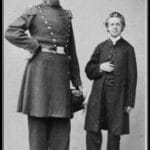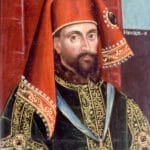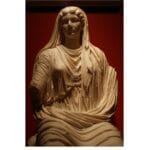Forget stuffy history books! Let’s explore the extraordinary life of Octavian, the man who transformed from a relatively unknown individual to Augustus, Rome’s first emperor. His title, Caesar Divi Filius Augustus, wasn’t merely a long name; it was a meticulously crafted brand, a powerful image that fundamentally reshaped Rome. This article delves into the strategies he employed—political maneuvering, religious manipulation, and brilliant public relations—to achieve supreme power. We’ll journey from the assassination of his great-uncle, Julius Caesar, to the establishment of the Roman Empire and explore why Augustus’s legacy continues to fascinate historians.
Augustus: From Son of the Divine to Emperor
The year is 42 BC. Rome buzzed with change. The Senate, usually a hotbed of political squabbling, took an unprecedented step: they deified Julius Caesar, proclaiming him Divus Iulius—Divine Julius. This wasn’t symbolic; it was a seismic political event with far-reaching consequences. The key figure in this transformation? Caesar’s adopted son, Octavian.
Octavian’s Strategic Masterstroke: Claiming Divinity
Octavian, an ambitious young man, recognized a golden opportunity. He shrewdly adopted the title Caesar Divi Filius Augustus—Son of the Divine Julius. This wasn’t just a title; it was a powerful assertion of authority, a declaration that his rule was divinely ordained. Rome was in chaos following Caesar’s assassination, various factions vying for control. Octavian’s claim to divine lineage provided a significant advantage, setting him apart from his rivals. It’s doubtful any other politician of the time could have executed such a bold strategy so effectively.
Augustus’s Propaganda Machine: Shaping Public Perception
Augustus (Octavian’s later name) was a master of propaganda. He understood the power of carefully constructed narratives and imagery. His reign can be seen as a vast, empire-wide branding campaign. Coins, statues, and meticulously crafted public pronouncements flooded the Roman world, portraying him as the divinely appointed leader. His message was clear: “I am the ruler chosen by the gods.”
Dissecting Augustus’s Propaganda Techniques
To understand Augustus’s success, let’s examine his propaganda methods:
| Propaganda Method | Description | Example | Effectiveness |
|---|---|---|---|
| Coins | Images and inscriptions on coins, seen by everyone. | Coins showing Augustus with the “Son of the Divine” title. | Widespread dissemination of his message; subtle influence. |
| Statues | Imposing statues placed throughout the empire. | Statues of Augustus portraying him as majestic and god-like. | Created a powerful visual representation of his authority. |
| Public Announcements (Speeches) | Public pronouncements carefully worded to shape public opinion. | Speeches emphasizing his destiny to rule. | Shaped public perception and discourse. |
| Public Works | Large scale infrastructure projects demonstrating his beneficence and power. | Construction of temples, aqueducts, and public buildings. | Showcased his power and capacity to improve Roman lives. |
The Principate: A New Era of Roman Rule
Augustus skillfully navigated complex political power struggles. He established the Principate, a system blending Republican ideals with imperial rule. Essentially, he cleverly combined old and new, enabling a seamless transition from republic to empire with himself at the helm. This was achieved through his carefully cultivated public image and the perception of divine right.
Augustus’s Enduring Legacy: The Divine Emperor’s Influence
Augustus’s concept of a divinely appointed ruler profoundly impacted imperial governance for centuries. Numerous emperors attempted to emulate his “divine right” approach, with varying degrees of success. Augustus’s story remains compelling because it showcases how masterfully one person can alter the course of history. It highlights the immense power of propaganda and the evolution of leadership and authority perceptions. His story is a lesson in power acquisition and maintenance and its influence on the perceptions of subsequent leaders. Research into Augustus continues to evolve; debate remains about his propaganda’s effectiveness and his relationship with the Senate. This makes his legacy a vibrant and continuously-developing area of historical inquiry.
Why Was Augustus Called Divi Filius? [https://www.lolaapp.com/why-was-augustus-called-divi-filius]
After Caesar’s assassination, Rome was unstable. However, Caesar’s influence endured. The Senate’s 42 BC declaration of Caesar as Divus Iulius (Divine Julius) was unprecedented. This act set the stage for Octavian’s audacious move.
Octavian, Caesar’s adopted son and a shrewd political operator, seized the opportunity. He styled himself Divi Filius (“Son of the Divine”). This wasn’t just a title; it was a strategic masterstroke. Linking himself to a god instantly elevated his stature. He was no longer just another politician; he possessed a divine connection to the most influential figure in recent Roman history. This was a brilliant way to claim supreme authority. He cleverly exploited this for political advantage, revolutionizing the political landscape.
Augustus understood the power of imagery. Coins featured his image with the Divi Filius inscription. Statues were erected, reinforcing his divine link. This wasn’t mere decoration; it was a comprehensive propaganda campaign. Visual reminders of his divine right to rule were ubiquitous. This was incredibly effective.
This move reshaped Roman religion by blurring religious and political spheres, leading to the imperial cult—emperor worship. Emperors were no longer just leaders; they were deities. The perception of rulers changed, enhancing imperial power considerably.
Augustus’s strategy had lasting effects, influencing centuries of emperors. Tiberius, Caligula, Claudius, and others used Divi Filius, attempting (with varied success) to replicate Augustus’s achievement. Even though widely imitated, the title evokes Augustus’s political genius. While many attempted to replicate his success, none matched his original brilliance. Some experts believe his success stemmed from tapping into existing Roman beliefs; others believe it was pure political strategy. Regardless, it was unequivocally effective. Ongoing research may uncover further nuances of how he cultivated this image.
What Happened Between Julius Caesar and Augustus? [https://www.lolaapp.com/what-happened-between-julius-caesar-and-augustus]
The relationship between Octavian (later Augustus) and Julius Caesar is a fascinating narrative of ambition, power, and legacy. It was less a story of close familial bonds and more a strategically exploited connection that catapulted Octavian to power. To comprehend Augustus’s rise, we must examine events before, during, and after Caesar’s death.
Caesar’s will, revealed post-assassination, was politically explosive. Naming Octavian, his grand-nephew, as his adopted son and heir ignited a massive power struggle. This momentous decision plunged Rome into chaos, but Octavian would ultimately triumph. This was a cascading event, initiating a chain reaction that ended the Republic.
Following Caesar’s death, Octavian faced significant challenges. Inexperienced and surrounded by enemies, he was an underdog. Yet, he not only survived but prospered. This success was attributable to a combination of strategic alliances, political acumen, and military victories. The Second Triumvirate, an alliance with Mark Antony and Lepidus, gave him much-needed military support. The pivotal Battles of Philippi solidified his reputation as a capable military commander. His political ability allowed him to outmaneuver rivals, culminating in the decisive victory at Actium (31 BC) against Mark Antony and Cleopatra, clearing his path to supreme power.
Augustus’s transformation of the Roman Republic into the Empire was a masterclass in political strategy. He avoided overt tyranny, subtly shifting the power balance. He presented himself as Princeps (“first citizen”), a carefully chosen title that implied leadership without provoking rebellion. This was a clever political manoeuvre, allowing him to accumulate immense power while avoiding the label of tyrant.
Augustus’s reign involved extensive reforms shaping Roman society for centuries. He didn’t just maintain order; he improved Roman lives. He reorganized the army, implemented tax reforms stabilizing the economy, and invested heavily in infrastructure. The Pax Romana, a period of unprecedented peace and prosperity, directly resulted from his policies and governance.
To solidify his rule, Augustus strategically utilized the reverence for his adoptive father. He subtly promoted Caesar’s divinity, establishing a cult dedicated to his memory. This wasn’t merely religious; it was a brilliant political strategy. Linking himself to a deified figure enhanced his legitimacy and authority.
Augustus’s enduring legacy is undeniable. He left behind a more stable, prosperous, and organized empire. His monumental architectural projects are still visible, reminders of his ambition and profound impact. His influence permeated Roman life, a testament to his incredible political genius. His shrewd understanding of power, coupled with his ability to manage reforms while maintaining the appearance of republican tradition, established him as one of history’s most successful political leaders. Ongoing research continues to shed new light on the complex relationship between Caesar and Augustus, continually refining our understanding of this crucial period.
What Did Augustus Caesar Call Himself? [https://www.lolaapp.com/what-did-augustus-caesar-call-himself]
To understand Augustus’s self-presentation is to understand his strategic brilliance. He didn’t just become emperor; he branded himself into the position. His titles were carefully chosen and deployed. Each title was a strategic move, a piece in his political chess game.
His name began as “Octavian,” a familial connection to Julius Caesar. But after Caesar’s assassination and deification, Octavian took a bold step. He adopted Divi Filius (“Son of the Deified One”), instantly linking himself to Caesar’s legacy and claiming divine legitimacy. He was no longer just an ambitious politician; he had a divine connection.
Then came “Imperator,” a title for victorious generals. Augustus made it permanent. This constantly reminded everyone of his military prowess. His military triumphs weren’t just historical events; they were ongoing advertisements.
The title “Augustus” itself was bestowed by the Senate, implying supreme authority without explicit kingship. It was a masterful political move. It maintained the appearance of republican ideals while solidifying unprecedented power.
He also used “Princeps” (“First Citizen”), a stroke of genius creating the illusion of republican leadership while wielding absolute power.
These weren’t just titles for official documents; they were everywhere! Roman coins — the social media of their time — constantly advertised Augustus’s titles and achievements. He controlled the message, shaping public perception.
The transition from Republic to Empire wasn’t sudden; it was carefully orchestrated. Augustus’s titles, combined with masterful propaganda, played a critical role. He mastered image control and political manipulation. The use of Divi Filius was especially effective, establishing a connection to the deified Caesar, justifying his rule and preparing the way for the new order.
Later emperors, like Tiberius, Nero, and Domitian, unsuccessfully tried to replicate his success by adopting Divi Filius. This title became a symbol of imperial power, a testament to Augustus’s enduring influence. Augustus didn’t just become emperor; he branded himself as one. His clever use of titles, combined with skillful propaganda, created a lasting legacy and forever altered the Roman world. His story demonstrates that successful leaders are often powerful communicators and astute image managers. And his methods remain a fascinating study in political strategy.
- Revolution Space: Disruptive Ion Propulsion Transforming Satellites - April 24, 2025
- Race Through Space: Fun Family Game for Kids - April 24, 2025
- Unlocking the Universe: reading about stars 6th grade Guide - April 24, 2025
















